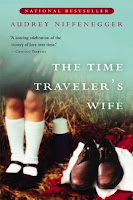 TITLE: Excession
TITLE: ExcessionAUTHOR: Iain M Banks
PUBLISHER: Orbit
RANKING
5/5 "Indiscretion"; 4/5 "Obsession"; 3/5 "Possession"; 2/5 "Depression"; 1/5 "Recession"
SCORE: 4/5
To keep themselves amused, the super-AIs known as Minds in Iain M Banks's science fiction universe spend their time runing galaxy-sized simulations, a world of make-believe and might-have-been the Minds call the Land of Infinite Fun.
"Excession" is a bit like spending a few hours in Mr Banks's own Land of Infinite Fun; outlandish, amusing, intriguing, but never quite involving enought to let you forget that it's all just make-believe. Po-faced it certainly is not, it's space opera with a wink and a smile, gently tapping on the fourth wall but never quite breaking it.
"Excession" is the fourth book set in Mr Banks's Culture universe. This universe features technology as ahead of own our as the iPod is to the clay tablet, technology taken to its ultimate extreme, capable of building anything, anywhere, in any quantity desired. As a result, the biological inhabitants have long since given control of space ships and habitats (nobody's so old-fashioned as to live on an actual planet) and pretty much everything else to the Minds, a bunch of computers as pompous as Deep Thought, as twiggy as HAL and as serious as a whoopy cushion at a Shriner convention. They are the perfect security blanket for the cosseted inhabitants of the Culture. Together, they can out-think and out-fight anything the galaxy can throw at them.
Anything? Well, almost anything. The word "excession" you see, means something beyond a civilization's ability to understand, or resist should it prove hostile. The Aztecs would understand the concept. The Culture, as luck would have it, may have discovered an Excession, in the form of an impenetrable black globe which may serve as a link to other universes. As an added complication, it's also rather close to a warlike race called the Affront.
Mr Banks plugs us into the machinations of the Minds, as they struggle to respond to the challenges posed both by the Excession and the Affront, not to mention a cabal-within-a-cabal of rogue Minds with an agenda of their own.
It's not all a meeting of Minds, though they hog the limelight and all the best lines. There's also Genar-Hofoen, a rake in the Clark Gable mould, currently serving as an ambassador to the thuggish frat-boy Affront. Somewhere in his closet, where he keeps his skeletions, is his ex-lover Dajeil Gelian, now a recluse on board a highly eccentric ship called the Sleeper Service.
The Minds have a job for Genar-Hofoen, though it might be pure stratagem. Tricky chaps, AIs. Just ask David Bowman. Are they trying to stop a war over the Excession, or start one?
The mysteries emerge into clearer resolution somewhat haphazardly, as we flicker randomly back and forth between Genar-Hofoen, Dajeil, and the Minds. The plot is mere subroutine, never the main program. The history between Genar-Hofoen and Dajeil, for example, is revealed in flashback info-dumps, and does not resolve so much as suddenly stop, blue-screened by other events around the Excession.
It's never a terribly compelling story, but then it's always fun to watch Mr Banks at play in his universe.
Mostly, you see, the novel is an exploration of the imaginative universe M Banks has created for us. What do supercomputers do for fun? What would post-humans do for religion? What would families be like if you could change your sex anytime you wanted? You get the feeling Mr Banks would rather answer these questions than attend to his sprawling story. It's a nice reminder that while American scifi has the best gadgets, it's the Brits that have the most fun. The overall structure of may suffer as a result, may get a little buggy, but the result is priceless.
It's not quite Infinite Fun, but you don't have to have a brain the size of a planet to enjoy plugging into Mr Banks's universe.




